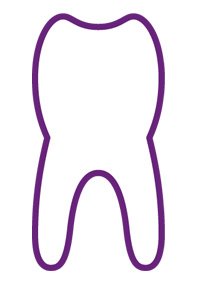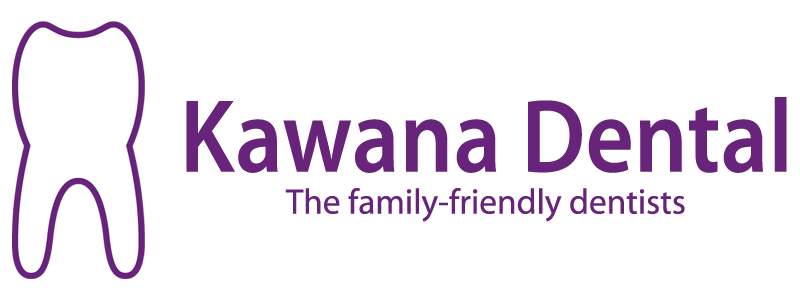At Kawana Dental, we are especially concerned to ensure that kids have a good start in their dental lives.
Babies and toddlers.
We would love you to watch this fantastic video “Protecting Tiny Teeth” presented by the awesome Dr Karl which explains simply how to avoid your kids getting decay in their teeth.
Keeping toddlers and kid’s teeth healthy is important to prevent future orthodontic problems as well as preventing pain, infection and unpleasant experiences that were common in “the old days”.
We offer a free first visit for toddlers who may never have been before. Just ask our lovely receptionists.

Bottle decay.
Rapid tooth decay may result when babies are given bottles with cordial, sweetened syrups, soft drink or juice.
Bottle decay may even occur if infants are regularly allowed to fall asleep with a bottle containing milk (including breast milk).
This may lead to your child having decay, pain and extensive dental treatment at an early age.
To avoid tooth decay in your baby’s mouth.
- Breastfeed – breast milk gives babies all the food and drink they need for the first 6 months of life: other drinks are not needed.
- Only put milk or water in baby’s bottle.
- Pacify a baby between feeds with a bottle containing cooled, boiled water.
- Do not give fruit juice to a child under 6 months and as a rare treat when older.
- Give older children whole fruit rather than juice (whole fruit contains nutrients with much less sugar and much more fibre)
- Avoid sweetened syrups, cordial and soft drink.
Sweetness is an acquired taste. If your child uses a dummy, do not put honey or any other substance on it as this can also cause rapid tooth decay.
Thumb sucking.
Thumb sucking may alter the way teeth close together.
However, most problems will self correct if the habit is stopped when the adult teeth arrive.
It is best not to pressure a child who sucks their thumb to stop, as this may cause stress and increase their need to suck for comfort. Use lots of positive encouragement to reinforce kicking the habit during the day. This may decrease their need to thumb suck at night. If the habit continues after the adult teeth start to appear, or if you are concerned, please come and see us.
Dummies.
- Do not dip dummies in honey, jam, condensed milk or vitamin C syrups. This can cause severe tooth decay.
- When dummies are dropped, they should be placed in sterilising solution to kill bacteria. Offer a spare dummy instead.
- Do not allow children to share a dummy or any other person to place the dummy in their own mouth. This may transfer decay causing germs to the child.
More tips for babies.
1. Children can get early decay known as Early Childhood Caries (ECC). Without treatment, this can lead to toothache, infection and early loss of teeth.
The bacteria involved in decay are innoculated from the mouths of mothers and involved carers after birth. Hopefully carers haven’t got a mouth with active decay!
2. High sugar diets and lack of good brushing and flossing increase the chance of decay. Fluoride, now in water on the Sunshine Coast, helps to decrease the risk of decay… however don’t use fluoride toothpaste until your child is 18 months of age and then use child-strength until age six.
3. Take your baby to the dentist for a check up within six months of the eruption of their first tooth or by their first birthday. You will receive the advice you need to avoid decay and scared/phobic kids later.
Our hygienists Fiona and Jorge are particularly skilled in reducing fears and providing important information on prevention.
4. Teething… Signs that a primary tooth is about to appear include frequent crying, reddened cheeks and drooling, sucking or gnawing on toys, appetite loss and upset stomach. Things like frozen bananas are helpful!
For interesting historical ideas/myths about teething see bottom of the page.*
5. Sucking is a natural reflex in babies and young children. Pacifier (dummy) and thumb or finger sucking usually stops between the ages of two and four. Your dentist can give you helpful advice regarding oral habits.
6. Children will tend to imitate their parent’s behaviours. If good nutrition, oral hygiene and dental care are important to you, they will become important to your child. You will need to help brush until around age 8, and actively supervise children’s cleaning until about age 10 (or 40, depends on your family!).
Useless Teething Facts:
* The ancient Greeks and Hindus thought teething caused illness: the Sumerians thought it was somehow connected to worms. In 1839 more than 5,000 deaths in England and Wales were attributed to teething by the Registrar General, and in 1842 this same genius claimed nearly on in eight fatalities under the age of four were caused by incoming teeth! In 1894 a well-known dentist wrote, apparently seriously, “So deadly has teething become that one third of the human family die before 20 deciduous teeth have fully appeared.”
Teething fears gave rise to all sorts of bizarre remedies, including tying a penny on a string around the child’s neck, having a puppy lick the child’s mouth, placing a raw egg in a sock in a drawer, lancing the child’s gums and administering purgatives, opiates, lead, or mercury salts. To be fair, infant mortality was high in the old days: it’s not like people were imagining these deaths. However, we see a pattern that persists to this day: if you couldn’t figure out what was wrong with a baby or toddler, you blamed it on teething!


